Lifelong learning differentiates those with a growth mindset from those who have a fixed mindset according to Dr. Carol Dweck, who in her book, Mindset, reminds us that our worlds, our careers, our lives, can expand through learning. That is the reason why I do workshops. To reach our potential, continuous learning is a vital path to get there. I lead half-day workshops on the following topics:
– – – – – – – – – – – –
Energy Leadership™
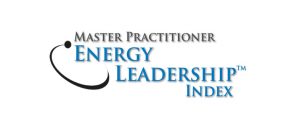
Many leaders have realized all of the productivity gains they can achieve through effective time management. However, time is finite and we all have the same amount of it. The next wave for productivity gains is to better manage our energy. Many equate energy management with physical conditioning. While that is an important part of energy management, this presentation is focused on our brain’s ability to furnish us with increased energy. This translates to increased individual and team productivity, and enhanced morale and employee engagement.
The purpose of this workshop is to offer alternative ways to view difficult challenges and stress; to effectively lead teams and oneself through these challenges to achieve goals. Behavioral science has proven that our thoughts and self-talk have a high correlation to the outcomes we desire. They drive the energy that we expend or invest in the workplace. This energy serves and propels us and those we work with, or it inhibits goal attainment, creating dysfunction, blame, and rework. Workshop participants receive a report of their energetics levels, indicating where their choices enable or deplete their capacity to lead themselves (and therefore others) effectively.
– – – – – – – – – – – –
Emotional Intelligence / Emotional Quotient
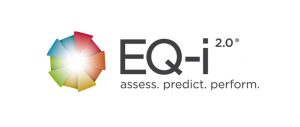
Research has confirmed the business and career value of high levels of emotional intelligence. It is the ability to identify, use, understand, and manage emotions in an effective and positive way. A high EQ helps individuals to communicate better, reduce their anxiety and stress, defuse conflicts, improve relationships, empathize with others, and effectively overcome life’s challenges.
According to Daniel Goleman, “The most effective leaders are all alike in one crucial way: they all have a high degree of what has come to be known as emotional intelligence. It’s not that IQ and technical skills are irrelevant. They do matter, but… they are the entry-level requirements for executive positions. Without EQ, a person can have the best training in the world, an incisive, analytical mind, and an endless supply of smart ideas, but he/she still won’t make a great leader”.
There are five components of emotional intelligence that allow individuals to recognize, connect with, and learn from their own and other people’s mental states:
- Self-awareness
- Self-regulation
- Motivation (defined as “a passion for work that goes beyond money and status”)
- Empathy for others
- Social skills, such as proficiency in managing relationships and building networks
In this workshop, participants take the EQI2.0™ assessment, debrief it in a group setting, learn the framework, scales and subscales of emotional intelligence, and then begin their application of the material to their individual development planning.
– – – – – – – – – – – –
Emergenetics® Meetings of the Minds
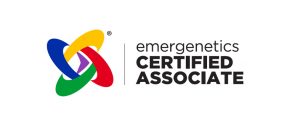
Few assessments can combine thinking preferences with behavioral preferences while keeping it simple and understandable. Emergenetics is one of those assessments. Based on high reliability and validity, Emergenetics takes advantage of emerging neuroscience to provide an assessment and meeting framework that facilitates business outcomes: better teaming, collaboration, communication, and self-understanding. The Meetings of the Minds workshop is a talent development workshop that introduces participants to the instrument after they take a confidential assessment that provides them with four thinking and three behavioral preferences. The “workshop in a box” is one of the best laid out workshops to provide both theory, practice, and relevance all in one half day. It is a strengths based instrument that helps participants to value their natural preferences while learning to appreciate those who differ from them.
The workshop has been delivered around the world in multiple languages and works effectively across cultures due to the easy to understand topics and graphics that transcend local language.
– – – – – – – – – – – –
Conversational Intelligence™
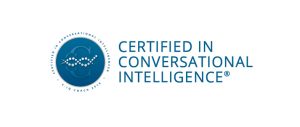
A concept whose time has come, Conversational Intelligence© is the key to success in life and business. It’s not about how smart you are, but how open you are to learn new and effective powerful conversational rituals that prime the brain for trust, partnership, and mutual success.
Conversational Intelligence presents a framework for knowing which kind of conversations trigger the lower, more primitive brain and which conversations activate higher-level intelligences such as trust, integrity, empathy, and good judgment. Conversational Intelligence© makes complex scientific material simple to understand and apply through a wealth of easy-to-use tools, examples, conversational rituals, and practices for all levels of an organization.
According to Judith E. Glaser, 9 out of 10 conversations miss the mark. “To get to the next level of greatness, depends on the quality of the culture, which depends on the quality of the relationships, which depends on the quality of the conversations. Everything happens through conversations.”
With Conversational Intelligence, we strive to:
- Elevate the quality of conversations across an entire team or organization
- Create positive change in an organization
- Enable people to embrace and navigate change in healthy ways
- Prevent rituals that become toxic over time
- Improve team success
– – – – – – – – – – – –
Conflict Dynamics Profile™

Conflict is inevitable. It is said that 20-40% of all supervisory time is spent in some form of conflict management.
In work with senior executives and executive teams, The Conflict Dynamics Profile (CDP) is a superior instrument for both coaching and workshop use. By focusing on the behavioral elements of conflict responses, the instrument effectively identifies specific skills to maintain or develop to enhance both individual and team effectiveness. Rather than focusing on conflict “style”, the CDP offers behavioral descriptions, which provide a much better working surface for development.
Using the CDP will change the way one thinks about and deals with conflict. This tool offers much more than perspective, it provides concrete suggestions to dramatically change the conflict conversation. The CDP provides reliable feedback that can be quickly grasped for immediate action along with the impetus for sustainable change that can be life and career enriching.
In addition to an individual assessment for each participant, workshop attendees will learn about conflict intensity levels, constructive and destructive conflict behaviors, overlaid by active and passive behaviors. Participants also learn about hot buttons or “triggers” for conflict for themselves. They learn pragmatic, applicable steps to de-escalate and shorten conflict situations.
– – – – – – – – – – – –
Executive Presence (EP) – the X Factor at the Senior Level
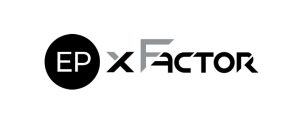
We know it when we have encountered it. Certain executives have more “presence” than others. They carry their title well. They are noticed and have an impact when they are in a room. Researchers do not agree on what executive presence is and in fact, it will look very different from one executive to another. Why is EP coveted and admired so much? It seems that those who have it get the benefit of the doubt for the next opportunity and the next promotion. Followers appreciate leaders who have it. Even more significantly, those who do not have it do not advance in their companies. Despite the variation of interpretation, certain key attributes surface from those who have studied it most deeply:
- Gravitas – includes confidence, acting decisively, speaking truth to power, high emotional intelligence, reputation and the ability to project vision. It is the most important factor in EP.
- Communication – includes great speaking skills, ability to command a room and the ability to read an audience.
- Appearance – it counts and includes good grooming and attractiveness.
Other experts add character, substance and style. Development of executive presence can provide a number of benefits:
- Increasing influence (driving business results, increasing assertiveness, ability to motivate others)
- Enhancing “promotability” (higher self-awareness of career limiters, greater authenticity through credibility, Increased political and power structure awareness)
- Developing communication efficacy (communicating with impact, stronger resonance and connection with others, being better understood)
Each participant will have completed the EQI2.0™ prior to the workshop to self-assess 15 elements of emotional intelligence. They will also complete a self-assessment of executive presence elements. Additionally, they will also have 2-3 articles/models on EP to review. During the workshop, the group will learn about the various aspects of EP, discuss their EQi 2.0 and EP self-assessment results, work through a case study on elements of EP, and formulate an individualized plan of action to increase their EP.


